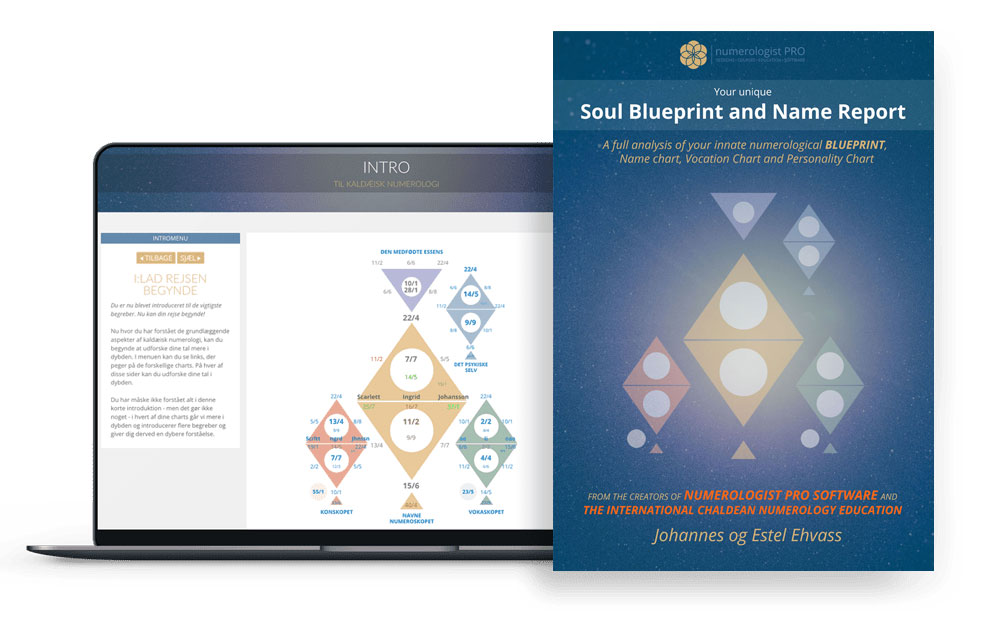Astrology and the New World

Johannes Ehvass
Welcome, dear reader! The Enlightenment, often hailed as the Age of Reason, ushered in an era where logic and empirical evidence reigned supreme. As society championed scientific discovery and rational thought, astrology faced a unique challenge. Positioned at the intersection of ancient beliefs and emerging skepticism, the celestial practice found itself both critiqued and revisited. Yet, even amidst this intellectual revolution, the allure of the stars persisted, reflecting the enduring human desire to find meaning beyond the tangible. Join me as we explore this dynamic period, where astrology navigated the delicate balance between tradition and transformation.
Astrology in the American Colonies and Early USA
Introduction: Stars in a New Sky
Crossing the Ocean: Astrology’s Journey

As European settlers journeyed to the New World, they carried with them a myriad of beliefs and practices, astrology being one of them. In a land of new beginnings, astrology found fertile ground to evolve and intertwine with the emerging American culture.
Why Astrology?
The uncertainties and challenges of colonial life made many settlers seek guidance, and for many, astrology provided answers to their pressing questions about the future and their place in this new world.
The Puritan Dilemma: Astrology in New England
Strict Beliefs and Occasional Hypocrisies
The Puritans, known for their strict religious views, publicly denounced many forms of divination, including astrology. However, in private, some might have still sought astrological advice, especially during times of crises.
Signs and Eclipses: Astrological Interpretations
Eclipses, comets, and other celestial events were often seen as omens. While religious leaders interpreted them as signs from God, there was a parallel narrative that leaned on astrological interpretations, tying these events to earthly happenings.
Middle and Southern Colonies: A Melting Pot of Beliefs
Quakers, Anglicans, and Astrology
In colonies with a more diverse religious landscape, like Pennsylvania and Maryland, astrology was more openly practiced. The Quakers, known for their tolerance, allowed for a variety of beliefs, including astrological ones.
Plantations and Astrological Almanacs
In the agrarian Southern colonies, planting by the signs—using astrological signs to determine planting dates—became a widespread practice. Almanacs, which included astrological information alongside other practical advice, were common household items.
Benjamin Franklin and ‘Poor Richard’s Almanack’
Combining Science and Astrology
One of the most famous almanacs was Benjamin Franklin’s ‘Poor Richard’s Almanack’. While Franklin was a man of science, he recognized the public’s interest in astrology and included astrological predictions, albeit sometimes with a touch of satire.
The Popularity of Almanacs
Franklin’s almanac and others like it became essential reading in many colonial households, underscoring the intertwined nature of astrology with daily colonial life.
Astrology in the Revolutionary Era
Astrological Predictions and Political Decisions
In the tumultuous years leading up to the American Revolution, astrological predictions about the fate of the colonies and their conflict with Britain circulated widely. Some revolutionaries even consulted astrologers for auspicious dates to carry out significant actions.
The Birth Chart of a Nation
The United States’ birth chart, cast for July 4, 1776, has been a topic of interest for astrologers since the nation’s inception. This chart, interpreted in various ways, reflects the character, challenges, and potential of the USA.
Conclusion: An Astrological Tapestry
The American colonies and the early USA were a tapestry of diverse beliefs, with astrology being a significant thread. From almanacs to the revolution, and from Puritanical Massachusetts to the plantations of Virginia, astrology played a multifaceted role in shaping the new American identity.
The Role of Astrology in Colonial and Revolutionary Thought
Introduction: Stars and Stripes
The Revolutionary Backdrop
As the tension between the American colonies and the British Crown intensified, so did the quest for understanding and predicting the future. Amidst this tumultuous period, astrology offered both hope and caution, resonating with the prevailing revolutionary sentiments.
Astrology: A Bridge Between the Mundane and the Celestial
For many colonists, astrology became a bridge, linking their day-to-day struggles with the grand cosmic designs. It offered a perspective that their rebellion and quest for self-determination were in sync with the universe’s plans.
Planetary Movements and Political Revolutions
The Significance of Celestial Events
Eclipses, planetary conjunctions, and other astronomical events were meticulously observed and interpreted. Such events, viewed through an astrological lens, were believed to influence kings, nations, and the outcome of wars.
Specific Predictions and Their Outcomes
Some astrologers made bold predictions about the outcome of the impending revolution, and while not all of them came true, they played a role in shaping public opinion and morale.
The Astrological Pamphlets and Almanacs: Spreading Revolutionary Ideas
The Rise of the Astrological Press
With increasing literacy rates and the widespread availability of printing presses, pamphlets and almanacs became popular mediums to disseminate astrological knowledge, often intertwined with revolutionary ideas.
‘Written in the Stars’: Celestial Propaganda
Revolutionary leaders, recognizing the influence of astrology on the masses, sometimes used astrological language and symbolism to rally support, suggest British tyranny was against the cosmic order, and argue that the revolution had celestial backing.
Choosing Auspicious Dates: Astrology in Strategy
The Significance of Electional Astrology
Electional astrology, which determines the most auspicious time to undertake an initiative, was sometimes consulted to decide on important events, believing that aligning actions with favorable stars could ensure success.
Historical Accounts and Astrological Influence
While not all leaders openly admitted to using astrology, there are historical accounts and anecdotes suggesting that some pivotal events were timed based on astrological considerations.
Astrologers: The Unsung Heroes of the Revolution?
The Role of Prominent Astrologers
Several astrologers were active during this period, providing counsel to the public and occasionally to leaders. Their interpretations of celestial events often held political undertones, providing either warnings or affirmations about the revolutionary path.
The Legacy of Revolutionary Astrologers
Though their names might not be as celebrated as other revolutionary figures, these astrologers’ influence in shaping public sentiment and revolutionary thought cannot be denied.
Conclusion: The Revolutionary Dance of Stars and Minds
In a time of uncertainty, when the very foundation of society was being questioned and reshaped, astrology offered both a comforting and guiding hand. The stars, for many, were not just distant celestial bodies but active participants in the grand drama of revolution. Through pamphlets, almanacs, and whispered consultations, astrology played a subtle, yet undeniable role in the birth of a new nation.
Native American and Indigenous Interpretations of Astrology
Introduction: A Collision of Worlds
The Pre-existing Astrological Beliefs
Before the European settlers arrived, the indigenous peoples of North America already had their own rich and intricate systems of understanding the cosmos. Their relationship with the celestial realm was deeply intertwined with their cultural, spiritual, and daily lives.
A Meeting of Two Astrological Traditions
The arrival of the Europeans and their astrological beliefs initiated a complex interplay between two distinct ways of interpreting the heavens.
Indigenous Celestial Traditions
The Sky as a Storyteller
For many Native American tribes, the stars were not just luminous objects in the sky but narrators of ancient tales, keepers of wisdom, and guides for life on Earth. Constellations had their own stories, often linked with the creation myths and moral lessons of the tribe.
Ceremonial Practices and the Celestial Calendar
The indigenous peoples used the celestial cycles to determine the timings of ceremonies, agricultural practices, and other community activities. These events were deeply synchronized with the natural world and its rhythms.
The Zodiac: A Comparative Study
Indigenous Zodiac vs. Western Zodiac
While the Western zodiac is divided into twelve signs based on the solar cycle, many Native American tribes had their own zodiac systems, often based on lunar cycles and significant seasonal markers. The characteristics and lessons from each sign, while different in symbolism, often echoed similar human experiences and traits.
Adoption and Adaptation
Over time, some tribes began integrating aspects of Western astrology into their practices. This resulted in a fusion of beliefs, where indigenous celestial symbols coexisted and sometimes intertwined with the more familiar signs of the Western zodiac.
Shamans, Healers, and Star Readers
The Role of the Celestial Interpreters
In indigenous cultures, certain individuals held the responsibility of interpreting celestial signs. Often, these were shamans or spiritual leaders who would decipher the messages of the stars, guiding their communities in decision-making, healing, and spiritual matters.
European Influence on Indigenous Star Readers
As European settlers and their astrological beliefs became more prominent, some indigenous star readers began incorporating certain Western astrological elements into their readings, leading to a unique blend of astrological interpretation.
Challenges and Continuity
Colonial Disruptions
Colonialism and its subsequent effects disrupted many indigenous practices, including their astrological traditions. Forced conversions, displacement, and cultural suppression meant that many of these celestial traditions were at risk of being lost.
The Resilience of Indigenous Astrology
Despite these challenges, the indigenous interpretations of the stars have shown resilience. Today, many tribes are actively reviving and preserving their unique astrological traditions, while also embracing elements of Western astrology.
Conclusion: A Tapestry of Stars
Indigenous interpretations of astrology offer a profound reminder that our relationship with the cosmos is multifaceted and deeply personal. The celestial stories told by Native American tribes add rich layers to the broader tapestry of astrological beliefs. In a world where cultures and traditions are constantly colliding and merging, the indigenous celestial narratives stand as testament to the enduring human quest to find meaning in the stars.

Johannes & Estel: Renowned authorities in Numerology, Astrology, and the esoteric arts. As the founders of Scandinavia's premier Numerology school, we're delighted to share our insights through this curated series on astrology. Dive in and discover the stars.
The Worlds Most Advanced Numerology Report

Your birthdate reveals your unique life purpose, potentials, talents, weaknesses, and karma in this life.
Your names show what you attract into your life regarding your career, relationships, happiness, money, and success.
GET THE REPORT HERE
Introduction to Astrology
The history of Astrology
Moving beyond deterministic astrology
Foundation of Astrology: Planets, Signs and Houses
Astrology and the Holographic Universe
The Holographic Universe
The Human Psyche as a Mirror to The Solar System
The Human Body as a Mirror to The Star Signs
Astrology Background
Egyptian Astrology
Mayan Astrology
Chinese Astrology
Indian Astrology - Jyotish
Celtic Astrology
Tibetan Astrology
Mesopotamian Astrology
Early Mesopotamian Astrology: The Dawn of Celestial Divination
Enuma Anu Enlil: The Epicenter of Babylonian Celestial Omen Interpretation
Babylonian and Chaldean Astrology
Babylonian and Chaldean Astrology
Chaldean influence and evolution
Chaldean Wisdom: Safeguarding and Transmitting Astrological Knowledge
Hellenistic Astrology
Hellenistic Astrology background
Claudius Ptolemy and Tetrabiblos
Vettius Valens
Dorotheus of Sidon
Persian Astrology
Persian Astrology background
Sassanian Astrology
Late Antiquity and The Transition Period
Late Antiquity and The Transition Period
Hellenistic to Islamic Transition: The Torchbearers of Astrological Wisdom
Islamic Golden Age
Arabian Astrology Background
Arabian Astrology Contributions
Medieval Astrology
Introduction: The Medieval Cosmos
Monastic Preservers: Astrological Knowledge in the Dark Ages
Astrology in Medieval Medicine
Kings, Queens, and Constellations: Astrology in the Medieval Court
The Church and the Stars: A Contentious Relationship
Universities and Scholastic Pursuits: Academic Astrology
Astronomy & Astrology: Tools of the Trade
Medieval Astrological Houses and the Synthesis of Traditions
Transition to the Renaissance: Humanism and the Celestial Arts
Reflections: Medieval Astrology's Echoes in Modern Practice
Astrological Art of the Middle Ages
Famous Medieval Astrologers
Medieval Astrological Texts
Renaissance Astrology
Renaissance Humanism and Astrology
Scientific Advancements and Astrology
The Social Fabric: Astrology in Everyday Renaissance Life
Court Astrologers of the Renaissance
Controversies and Conflicts: Astrology Under Scrutiny
Renaissance Texts and Authors: Continuation of a Tradition
Astrology and Art: Celestial Imagery in the Renaissance
Renaissance Astrological Practices: Evolutions and Innovations
End of the Renaissance: The Gradual Decline of Astrological Influence
Renaissance Astrology's Echo in the Modern World
Enlightenment Astrology
Introduction: The Enlightenment and Astrology
Challenging the Stars: Astrology's Critics during the Enlightenment
Astrology and the New World
Astrology in the 19th Century
The Dawn of Psychological Astrology
Astrology in the 20th Century: A Modern Renaissance
Astrological Associations and Schools
Modern Controversies and Astrology
Astrology and Popular Culture
Astrology and Technology
Current Trends and Future Directions in Astrology
Conclusion: Reflecting on Astrology's Evolution
The Planet Significances
The Sun in Astrology
The Moon in Astrology
Mercury in Astrology
Venus in Astrology
Mars in Astrology
Jupiter in Astrology
Saturn in Astrology
Uranus in Astrology
Neptune in Astrology
Pluto in Astrology
Chiron in Astrology
Black Moon Lilith in Astrology
Pars Fortuna in Astrology
Ceres in Astrology
Houses in Astrology
Introduction to Astrological Houses
The Angular Houses
The Succedent Houses
The Cadent Houses
The 1st House
The 2nd House
The 3rd House
The 4th House
The 5th House
The 6th House
The 7th House
The 8th House
The 9th House
The 10th House
The 11th House
The 12th House
Interaction Between Houses
Derived Houses, House Rulers, and Interceptions
Conclusion: Synthesizing House Knowledge
All Materials © 2023 & 2024 Numerologist PRO
Terms of Service: Information provided by Numerologist PRO and/or from this web site is not intended as advice (medical, psychological, financial or other), nor is it intended to replace your work with a qualified professional (medical or otherwise). You should maintain your relationship with your providers and consider the services of this site as informational only. Any information, stories, examples, or testimonials presented on this website do not constitute a warranty, guarantee, or prediction regarding the outcome of an individual. This web site is a sharing of knowledge and information of numerology/energy work based on the experiences of Numerologist PRO. You are encouraged to make your own decisions based on your own research and inner guidance. By booking and receiving services, you agree to fully release and hold harmless Numerologist PRO and all it's affiliated numerologists from and against any liability or claim that may arise out of or in connection with their service(s).
Numerologist PRO © 2021

CONTACT
numerologist@numerologistpro.com
LIKE US, and get free numerology tools, info about your personal numbers, best business dates of the year - and more!
YOUR FREE NUMEROSCOPE CHART
Enter your name and email below and get access to our free online numerology chart tool.